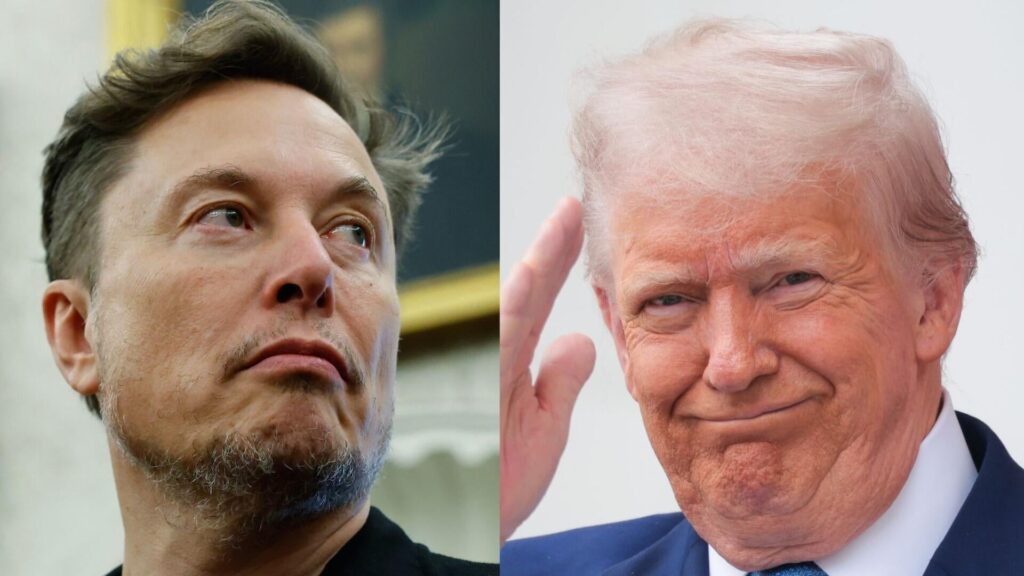Elon Musk’s Ambitious Political Aspirations Amidst Feuds with Trump
In a surprising twist in the political landscape, billionaire Elon Musk has reignited discussions about the formation of a new political party, the “America Party.” This initiative comes as Musk finds himself at odds with former President Trump over contentious budget legislation that is poised to affect the future of electric vehicle tax credits and beyond.
Earlier this month, Musk hinted at his intentions to create a third political party, which now appears to be part of a broader rupture with Trump. His renewed comments surface as the Senate and House move forward with the “One Big Beautiful Bill Act,” a significant piece of legislation set to be signed into law by Trump during a Fourth of July event.
“If this insane spending bill passes, the America Party will be formed the next day,” Musk indicated in a post on X (formerly Twitter), highlighting his frustration with the current two-party system in which he believes the American populace lacks a true voice.
Challenges Ahead for Musk’s Political Plans
The prospect of launching a new political party, however, is fraught with complexities. Brett Kappel, a seasoned election lawyer, points out that regardless of Musk’s wealth, navigating the political terrain to establish a new party involves overcoming various state laws and ballot access requirements.
“Political parties are creatures of the states,” noted Kappel, explaining that the rules vary widely from state to state. For instance, in California, a new party must either register about 75,000 members or gather signatures from over 1.1 million voters just to qualify for the ballot. Moreover, the challenges only intensify as parties must maintain significant support to remain viable.
| State | Voter Threshold for New Party | Signature Requirement |
|---|---|---|
| California | 0.33% of voters (approximately 75,000) | 1.1 million signatures |
| Florida | 3% of the vote | Varies by year |
| Texas | 1% of the vote | Signatures equivalent to 1% of the vote |
Forming a new political entity with national ambitions is not only a logistical challenge but could also face significant opposition from established parties. Legal hurdles related to ballot access and state requirements make the establishment of a third party particularly daunting. Existing third parties like the Green Party and Libertarian Party continue to struggle for ballot recognition decades after their inception.
Musk’s Financial Might and Political Leanings
Musk, whose fortune exceeds $350 billion, may have the resources to undertake such an endeavor, having previously spent $277 million to support Trump and Republican candidates in the last election cycle. Nonetheless, Musk hinted at a reduced political footprint of late, stating his contemplation to lessen his political donations moving forward.
Despite his current inclinations, Musk suggested he may still endorse Republican candidates who align with his views, especially those opposing the recently passed legislation. As he navigates these challenges, Musk’s calls for political independence resonate with an electorate eager for alternatives to the dominant two-party system. However, whether the “America Party” materializes remains to be seen.

